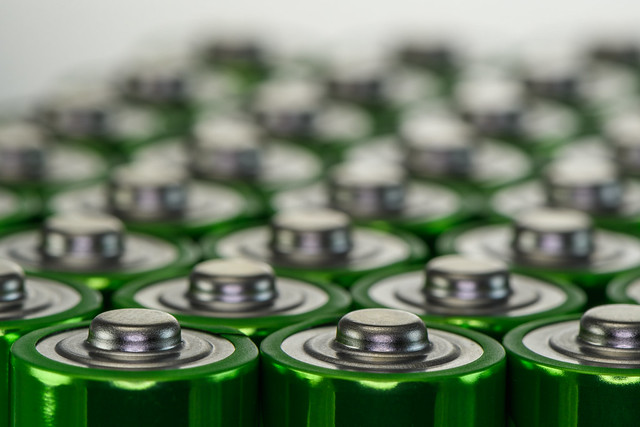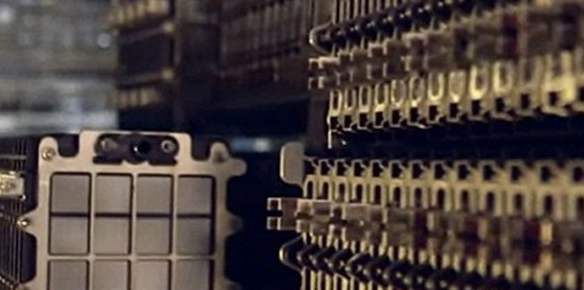Lithium Battery Vs SuperCapacitor-Application, Functions
Sep 11, 2019 Pageview:1259
lithium battery is the most amazing invention of science and assists people in many ways. These are used for personal purposes as well as in commercial industries. Moreover, there are many industries which are totally dependent upon lithium ion batteries. These batteries are used more because of their energy efficiency and fast charging along with longer battery life. These are made by using lithium ions in combination with many other chemicals which are liquid free and have low self-discharge capacity.
On the other hand a SuperCapacitor or ultracapacitor is another tool to provide current to the devices and help them in working. It is made up with metallic plates that are two in numbers and adjusted parallel to each other. After that, by using an external source, current is applied on the plates and this is when electric filed is created. This electric field is responsible to offer current to the
However a battery is different than the SuperCapacitor or UltraCapacitor though they are both responsible to provide current to the devices, machines, or tools in order to help them in running.
Can we use capacitor in place of lithium battery?
Before answering this very question, I would like to tell you that Batteries and SuperCapacitors both can store current inside them. Despite of this, I won’t recommend you to use Capacitors instead of lithium ion batteries. Well I have some reasons to tell you in this regard:
1.Batteries have extremely low weight and when they are placed inside a device, it still remains enough easier to carry them and port them from one place to another. On the other hand capacitors are heftier than batteries.
2.The storage capacity of lithium ion batteries is too much and way too more than the capacitors. That means, you can store high voltage current amounts inside a lithium batteries but not inside the capacitors.
3.Along with weight the volume of capacitors is also very high that means they will cover too much place while offering stored current to a device. On the other hand, the volume of batteries is not so much and they are easily adjustable inside the smaller or bigger devices.
4.The energy density of lithium ion batteries is also much better than the capacitors. It means, you can run bigger devices on batteries for longer periods of time without a worry but you cannot do so while using capacitors and due to their least-energy-density. Supercapacitors though have larger energy capacities and density still they discharge earlier than lithium ion batteries.
5.The price of Supercapacitors is less than the batteries so if you want a cost effective solution, you can choose to use Supercapacitors instead of lithium ion batteries.
However, scientists are now struggling more to make supercapacitors better energy efficient than li ion batteries and that’s why it is said that in the coming future the energy capacity or power of supercapacitors will be more in future.
What is the different application between a supercapacitor and a lithium battery?
If we talk about the application of supercapacitors exclusively, we find out that it is a little bit hard and requires more efforts. Well, this is because you need to run rapid cycles of charges and discharge. You cannot store more energy in a supercapacitor for too long. It gets discharged and charged again and again however easily. These supercapacitors are used in trains, cranes, elevators, or buses etc. where a continuous energy is keeping the supercapacitors working.
In contrast to standard capacitors, supercapacitors don't utilize the customary strong dielectric, but instead, they utilize electrostatic twofold layer capacitance and electrochemical pseudocapacitance, the two of which add to the absolute capacitance of the capacitor, with a couple of contrasts.
On the other hand, when you talk about the application of lithium ion batteries, they do not require any sort of charging or discharging cycles in order to run for longer periods of time. However, you cannot run bigger vehicles like buses and trains over it. You can simply use them in devices like laptops, mobiles, cameras, and toys.
Functions of capacitors battery and lithium batteries:
There are differences in the functions of capacitors battery and lithium batteries. Here are some of the differences in functions.
1.Storage:
Lithium ion batteries and capacitor batteries store energy in different places and methods. Such as, lithium ion batteries store energy in chemical forms while capacitor batteries store energy in the electric field. This thing makes capacitor batteries less functional than the lithium batteries because energy density of the former one is lessen.
2.Discharging:
Discharging period of the lithium ion batteries is lesser than the capacitor batteries. It means, when you use capacitor batteries, they require recharging again and again as they discharge faster. On the other hand, energy capacity of the lithium ion batteries is more and you don’t need to worry about recharging them over and over again.
3.Life Cycle:
In the term of life cycle, the capacitors batteries are known to have longer lives than the lithium ion batteries. It means, a capacitor battery would remain with you for several years however you will have to replace the lithium ion batteries after each two years. Though li ion batteries are useable after two years, however, they drain faster.
4.Operations:
When it comes to operating differences between li on batteries and capacitor batteries, we find lithium batteries easy to operate. As the electric current is being stored in the form of chemicals so you can turn on and off this battery quite easily. While the current in capacitor batteries is being stored in electric field so turning it off can be difficult and time taking.
5.Energy Sensitivity:
Lithium batteries are more sensitive to energy than the capacitor batteries. It means, you cannot put li ion batteries on charge for too long or else they will get burned.
Bottom Line:
Well, in the end, I would like to say that if you need a battery with long lasting charge, you should go with using li-ion-batteries.
- Prev Article: Dry Cell Battery Vs Lithium Battery-Definition, Characteristics
- Next Article: LiPo Battery Low Voltage Warning – Reasons
Leave Message
Hottest Categories
-
Hottest Industry News
-
Latest Industry News











